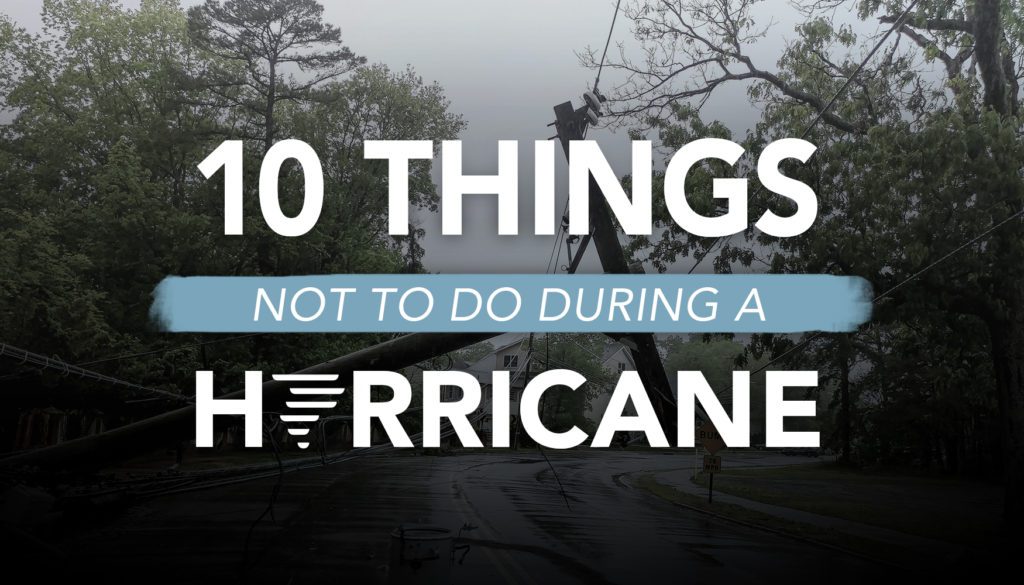The Atlantic hurricane season lasts from the beginning of June through November, and while Deployed Resources is tracking the storm and preparing to deploy temporary life support facilities and equipment in response, there are many ways to stay safe in the meantime.
Below are 10 things NOT to do during a hurricane:
- Do not drive. Flash flooding can happen quickly, and it only takes 6 inches of water to lift a car off the ground. Heavy rain and wind can also make it very hard to see.
- Do not go outside. It is easy to get hit and injured by flying debris, and severe weather conditions such as lightening is common. Wait until an official “go-ahead” is given.
- In addition to not going outside, do not underestimate the eye of the storm. The eyes of hurricanes range in size, and once the other side of the eye wall is reached, the storm can be just as intense (if not more so).
- While you stay inside, do not loiter by windows, skylights, and glass doors—especially if not properly covered. If possible, find a closed-in interior space such as a closet or bathroom on the lower level.
- If electricity goes out, do not light candles. Make sure to have flashlights and batteries on hand to lessen the threat of a fire starting.
- Hurricanes can bring severe lightening, therefore, do not use electrical equipment. Avoid using the phone, computer, and taking baths or showers during the duration of the storm.
- If you experience a power outage, it is crucial to turn off major appliances such as the water heater and the air conditioner to reduce possible damage. If you experience flooding, locate the main breaker and turn off the electricity.
- Do not use a generator inside; furthermore, make sure that it is away from all open windows or doors if outside. A running generator inside the house can cause a build-up of carbon monoxide and poison the people and/or pets inside. Charcoal grills and propane camping stoves should also not be used for the same reason.
- Do not touch fallen or low-hanging wires, stay away from water accumulations with wires in or near them, and do not touch trees or other objects (such as metal fences) that have contact with power lines.
- Do not panic. Keeping calm and acting rationally is important for your safety as well as others.
With hurricane season in full gear, we are ready to respond. Learn more about how Deployed Resources responds in the face of disaster.
